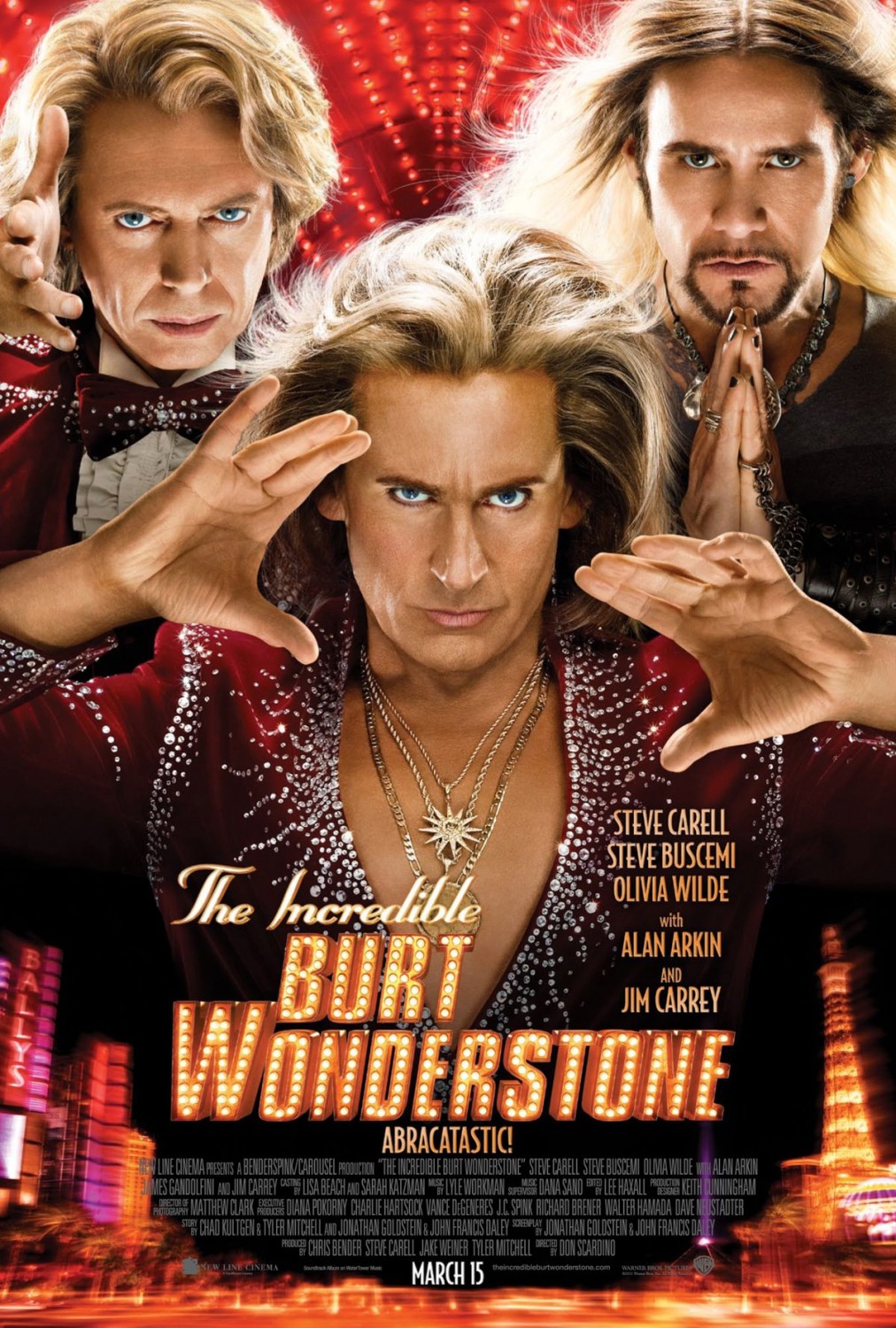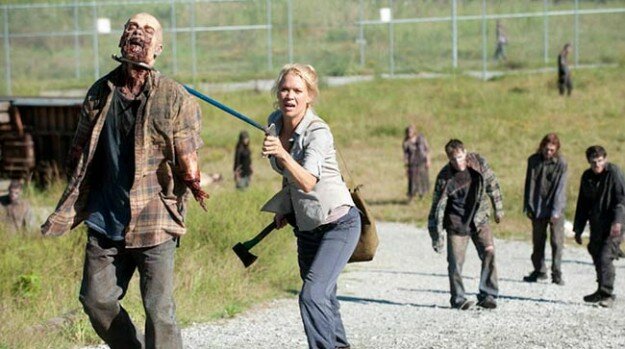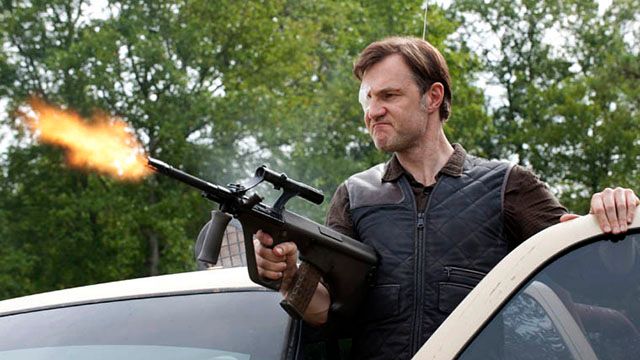Two fierce, angry men are planning war against one another. Both have a team of loyal and dedicated soldiers ready to fight the opposing side. As well as this rivalry, there is a seemingly never-ending hoard of the undead that always need to be getting the sharp end of each side’s sticks. The social politics of The Walking Dead has continually been the backbone of many of its episodes, though for episode 13 it’s undeniably obvious.
Major spoilers follow
David Boyd, television director/cinematographer, whose work includes Deadwood and Firefly, clearly understands the cool aesthetic of the Western genre. That’s why “Arrow on the Doorstep” begins like a fine Leone film. This comparison, albeit, is only minor as it is mainly the first four minutes that capture the silent, multiple angle set-up of the Spaghetti style. Nevertheless, it builds up a dread that all great Walking Dead episodes need to have. Rick tiptoes through an abandoned barn whilst Daryl and Hershel watch guard from the outside. We don’t understand what they’re up to until Rick comes eye to eye (no pun intended on the cyclopean villain) with the Governor. Cue creepy credits.

So just who is the bigger man in The Walking Dead; the boss/the alpha male/the don? Almost the whole of this episode looks at this query – with Rick and the Governor sitting down negotiating matters of territory and brethren, Daryl and Caesar showing off their slaughtering skills, and Glenn and Merle shouting and sparring. For Rick and the Governor it’s a subdued cock fight with words and reasoning being used as the figurative swords. We all side with Rick but we also understand the Governor’s desire for Michonne being handed over – after all, she did “kill” his daughter and leave him with one eye.
“One woman worth all those lives in your prison?” is a rational question to be asked, and in all honesty it’s tough to decide on whether Michonne is. On the one hand, she’s a kick-ass fighter and on the other she’s a mysterious, unreadable member of the group. Still, as Hershel says at the end, she saved a lot of the groups’ lives. Rick tells everyone he will go to war (never mentioning the Michonne-bargaining to anyone but Hershel) but only wants to be talked out of it. Could part of being talked out it lead to Michonne’s handing over; Hershel and his daughters’ lives in jeopardy over one newcomer? That’s a development that’ll make the next few episodes very interesting.
As well as our hero and villain in disagreement, their human side-arms are similarly quarrelling (though just as respectably). Daryl and Caesar showing off their walkers killing technique is peacocking of the highest degree, but for no woman. Andrea is present (before she rolls her eyes at them and leaves) though it’s a test to see who has the better slice, whack or stab when it comes to killing zombies. Daryl obviously wins and earns Caesar’s respect as the two chat post-rumble. As it is with Rick and the Governor and Milton and Hershel (discussed soon), it is the discussion of loss that breaks the tension between the two enemies (even if only briefly).
Milton and Hershel are the two that connect the most. Milton is ingeniously collecting notes on the events of the apocalypse for future generations to look back on, something that Hershel (and most of the audience will) find endearing. Milton’s avid curiosity about the time of infection, amputation and healing of Hershel’s amputation breaks the ice, with an additional quip from Hershel. As men of medicine, here is a pair who would be a great duo were it not for the divide of colonies. It’s something that might develop later on (perhaps if the war is won by Rick, Milton may join with them).
As the two parties separate after lengthy discussion – to be resumed again at a later date – the episode ends with a juxtaposed feeling of divide and familiarity. Talk of war may be exciting for the action-loving audiences but as Rick mentions, it’s not a sought-after outcome (especially now that they have all talked with one another). Maybe war will not come and The Walking Dead will throw another curve-ball. As of now, we have our heroes on edge at the prospect of battle – “They need to be scared...’cause that’s the only way they’ll accept it” as Rick tells them. He’s right in a broad sense; not all of them are intent on risking their lives but if it is the only way, that’s what needs to happen. That’s a common theme of the series – the last resort – and the viewer continues to ponder over the extent/limit of it.
By Piers McCarthy. Also posted on Flickering Myth.






